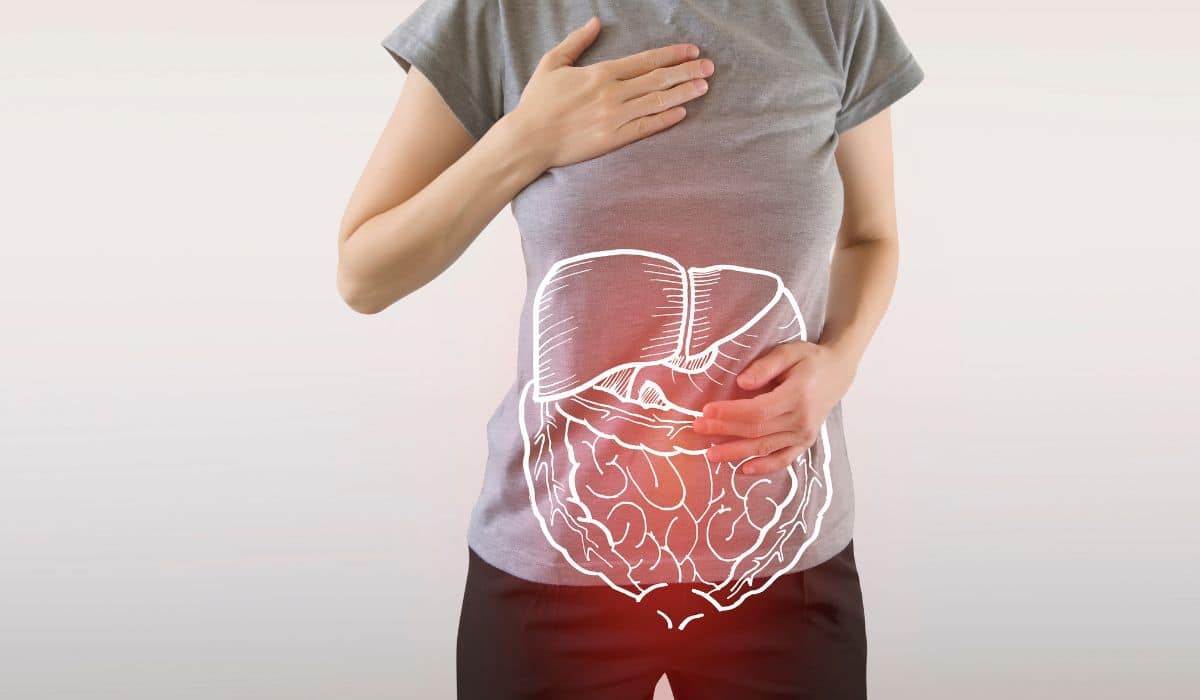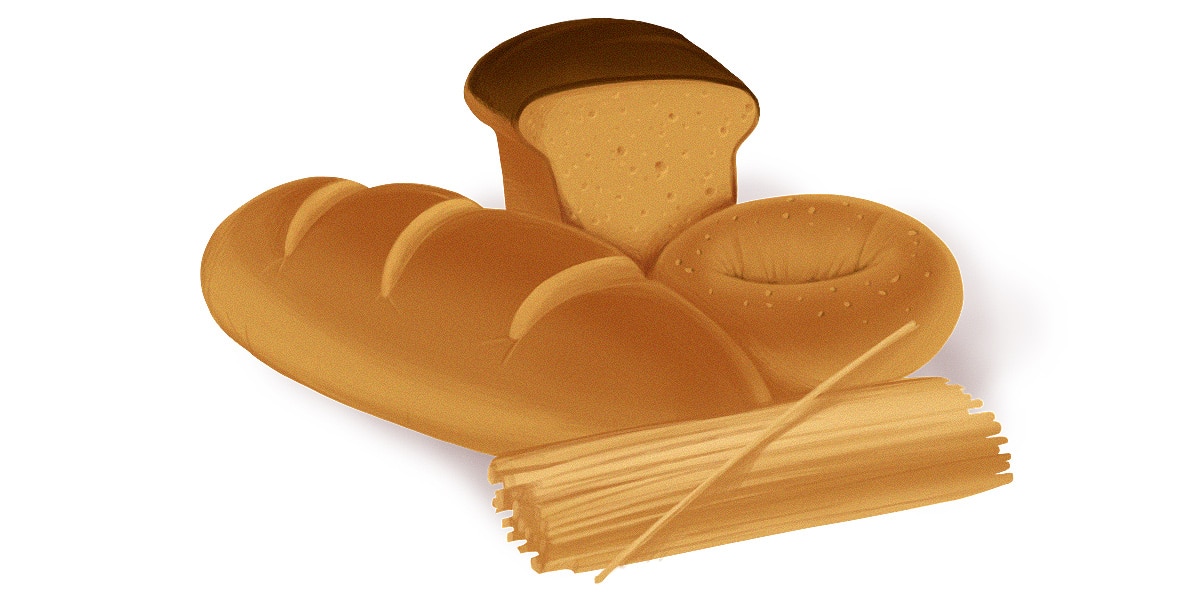
From upper digestive issues (dyspepsia, heartburn, etc.) to problems lower down in the gut (bloating, gas, constipation/diarrhea), there’s actually quite a bit of evidence that a gluten-free diet can help some people with digestive problems - and that’s true even if they don’t have Celiac Disease.
In fact, this post isn’t about Celiac Disease at all. People with Celiac Disease do get digestive symptoms, but in that case, the answer is clearly a gluten-free diet and everyone knows it. If you’re constantly having digestive symptoms and going gluten-free seems to clear it all up, it might be worth getting tested for Celiac just to make sure, but this post is really for people who don’t have Celiac Disease and aren’t sure whether a gluten-free diet would even do anything for their symptoms.
As it turns out, lots of people who don’t have Celiac disease experience digestive symptoms that get better when they eliminate wheat and other gluten grains. This is often called non-Celiac Gluten Sensitivity (NCGS), although it might actually be related more to other components of wheat than strictly to gluten, and it’s much more common than either Celiac Disease or a true wheat allergy. Here’s a look at how it works and how a gluten-free diet might help.
Links between gluten and digestive problems
As this study explains, non-Celiac gluten sensitivity causes digestive symptoms via activation of an immune response in the gut.
To start up at the top of the digestive tract, this study found that eating gluten was associated with worsened symptoms of functional dyspepsia (symptoms like heartburn and early fullness that affect the upper digestive tract). Gluten consumption was especially strongly linked to early satiety (feeling uncomfortably full after just a few bites of food). The researchers proposed that the damage to the intestinal lining caused by gluten consumption contributed to symptoms.
Moving down to the lower gastrointestinal tract, there’s also a lot of overlap between non-Celiac gluten sensitivity and irritable bowel syndrome, to the point where a review suggested many patients with “IBS” may actually have non-Celiac gluten sensitivity.
Here’s an interesting study looking at that: the researchers compared two different diets in patients with IBS. One diet was low in FODMAPs, poorly digestible carbohydrates that have been strongly linked to IBS symptoms. A low-FODMAP diet generally works pretty well for IBS. The other diet was a standard gluten-free diet. The researchers concluded that both “the low FODMAP diet and especially the GFD [gluten-free diet] led to a significant improvement of clinical and psychological symptoms in NCGS.” In the gluten-free diet specifically, the diet suppressed the immune response in the gut that may have been contributing to patients’ symptoms. In other words, a gluten-free diet might be comparable to a low-FODMAP diet for IBS patients!
Tweaking a gluten-free Paleo or keto diet for digestive health

A Paleo diet is already gluten-free by definition - all gluten grains, including wheat and barley, are eliminated along with all other grains. So if you’re eating Paleo, then congratulations - you’re already on the gluten-free train!
Gluten-free and keto: the easiest diet combination
If you’re here from a keto background: keto is 90% gluten-free by default, just because most of the gluten we eat comes from wheat, and wheat has so many carbs that you basically have to eliminate it to even come close to a ketogenic diet. But there are a few little things that might sneak past you: these foods don’t necessarily have enough wheat to up the carb count, but they can have enough gluten to cause a reaction:
- Soy sauce - is made with wheat. You can get gluten-free soy sauce or Paleo-friendly coconut aminos to replace it.
- Malt vinegar - other kinds of vinegars are fine, though!
Some kinds of mustard powder and other spices - a little bit of flour can be added as an anti-caking agent. - Sausages - check the ingredients list very carefully! Fillers in sausages often contain gluten.
- Miso and miso soup
- Many processed foods, even low-carb ones: always double-check the label for wheat, barley, or rye ingredients!
It’s a big wide world of gluten ingredients out there - luckily, you can avoid a whole lot of issues just by buying fresh ingredients and cooking things at home, rather than relying on processed low-carb or keto junk food.
Another issue to consider: fructans
Speaking of tweaks, here’s one more to consider: limiting fructans.
This is an interesting study (and for the real detail lovers, an interesting response to it) - the researchers considered whether people with non-celiac gluten sensitivity were actually reacting to fructans, not gluten. Fructans are certain fibers that are hard for humans to digest: they end up becoming food for your gut bacteria. Fructans include inulin (that’s the fiber added to a lot of fiber-enriched foods - not to be confused with insulin, the hormone that helps you process carbs) and oligofructose - and the largest source of fructans in the American diet is...wheat! This fits right in with the question of whether “non-Celiac gluten sensitivity” is really the wheat, not the gluten.
Other sources include onions, garlic, broccoli, and cabbage - as well as anything with added inulin (salad dressings, fiber supplements, meal replacement bars and shakes, etc.). This research suggests that if a gluten-free diet helps your digestive symptoms, it might also be helpful to consider a trial low-fructan diet, or at least get rid of anything with added inulin. For people who still have symptoms, going full low-FODMAP could be necessary, but maybe some folks can get away with just cutting down on fructans, which leaves you with a lot more options menu-wise.
Summing it Up
If you’re having weird or unexplained digestive symptoms - and especially if you’ve tried eliminating other things without any luck - a trial run of an absolutely strict gluten-free diet might be informative. Cutting down on fructans, or just on added inulin, could also be helpful. It might not work, or it might need some tweaking, but research suggests it is worth a shot.





Leave a Reply